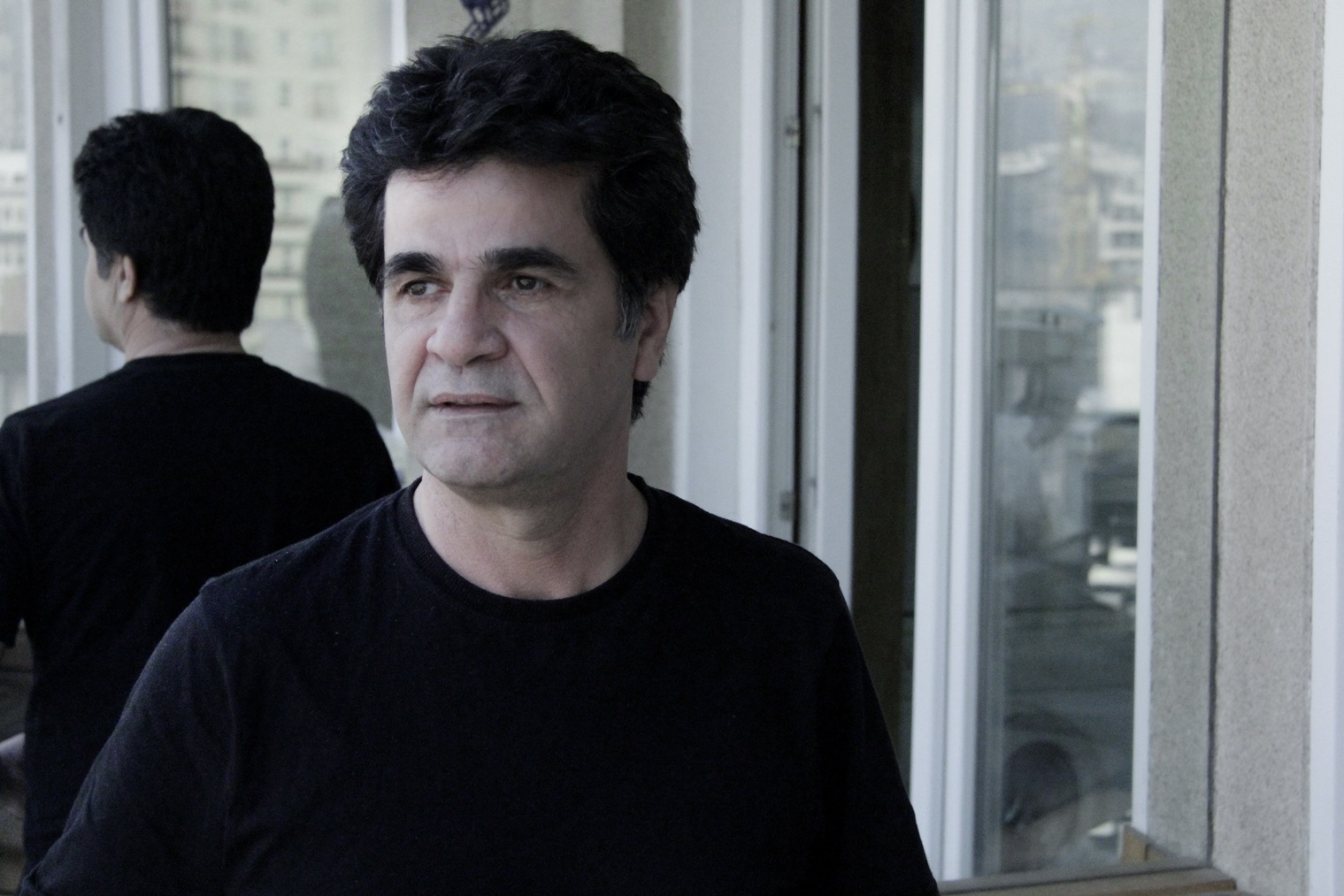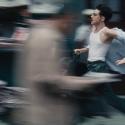With only a modest, handheld camera and an iPhone at his disposal, the internationally acclaimed Iranian director Jafar Panahi shot this film in secret whilst under house arrest. His close friend, and co-director of this film, Mojtaba Mirtahmasb, then smuggled it into France hidden in a cake as a last-minute submission to Cannes last year. Made whilst awaiting his appeal for a six-year prison sentence and a film-making ban of 20 years for publicly supporting the opposition party in Iran’s 2009 election, the film bravely and eloquently attempts to circumvent these restrictions: he is not "making" a film, merely going about his business with the camera switched on.
We first see Panahi eating breakfast alone in his Tehran apartment. His wife and children are away visiting relatives – his wife’s disembodied voice, amplified by the Ansaphone, drifts through the empty bedroom issuing stern but loving instructions for Panahi to get out of bed and to not worry. And we see him take and make various phone calls. A long conversation with his lawyer informs him that though there’s a chance of a reduction to his sentence, he almost certainly won’t be acquitted (we’ve since learned that the appeal of his six-year sentence has been denied).
Panahi himself confesses that he’s not sure exactly what he’s trying to do or what it will achieve
Much of the film is taken up with these remote conversations, gradually suggesting a feeling of being trapped – it’s a one-floor apartment within a complex that already feels a little sealed off from the world. The only bit of the city we encounter is the view from a window and balcony that overlooks a bank of neighbouring apartment blocks: there’s construction work being undertaken and a huge crane looms outside in the hot daylight. Moreover, when he tries to visit various websites on his laptop, he finds them all blocked. Meanwhile, his daughter’s pet iguana freely roams the flat, climbing walls and nonchalantly sinking its claws into Panahi’s chest as it crawls over non-human and human terrain alike.
The iguana’s desultory antics seem to echo the unfolding of the film. Panahi himself confesses that he’s not sure exactly what he’s trying to do or what it will achieve. We’re confronted with the quandary of a film-maker finding himself unable to make a film but unable to do anything else. But this certainly doesn’t make for a dull experience, for this is a film that’s extraordinarily powerful in understatement. Both deeply moving and anger-inducing, it’s also lit by wonderful moments of humour through which we observe the humanity and loyalty of friendship: at one point, reaching a creative impasse, Mirtahmasb wryly asks whether they are both just going to sit there looking at each other all evening, with Mirtahmasb pointing the camera and Panahi the iPhone. It’s a sharply funny moment which relieves much unspoken tension.
The film is partly a disquisition on film-making. Panahi’s concern for authenticity is highlighted again and again. At one point he voices frustration that his presence in front of the camera is contrived and he tells us that he feels "like the girl who tore off her cast”. He then illustrates this reference to one of his early films by showing us the moment in Mirror, where the little girl playing the lead suddenly stops acting, rips off her arm cast and goes off in a sullen rage while the camera continues to roll for the rest of the film, following her as she makes her way home. (Critics have since argued whether this is itself also contrived.)
 Other film clips provide opportunities for a cinema mini-masterclass. But the central portion of This is Not a Film is taken up with Panahi’s story of the film that he was making before he was banned: “Perhaps the viewer will see the film that wasn’t made,” he says, hopefully. And so we are told the story of the female student who is barred by her autocratic family from going to university to study a liberal arts degree. Imprisoned in her bedroom while her parents go on holiday, in her solitude she begins to fall in love with the boy she finds standing, day after day, in the alleyway that runs from her bedroom window. But what looks like a burgeoning love story is far from reality: eventually, she, and we, discover that the boy, far from being love-struck, is in fact a government agent.
Other film clips provide opportunities for a cinema mini-masterclass. But the central portion of This is Not a Film is taken up with Panahi’s story of the film that he was making before he was banned: “Perhaps the viewer will see the film that wasn’t made,” he says, hopefully. And so we are told the story of the female student who is barred by her autocratic family from going to university to study a liberal arts degree. Imprisoned in her bedroom while her parents go on holiday, in her solitude she begins to fall in love with the boy she finds standing, day after day, in the alleyway that runs from her bedroom window. But what looks like a burgeoning love story is far from reality: eventually, she, and we, discover that the boy, far from being love-struck, is in fact a government agent.
Like Lars Von Trier in Dogville, Panahi places masking tape to describe the confines of the girl’s room. But in the end, the telling and the not-showing defeats him. After a pause that feels like the final slipping away of hope, he asks: “If we could tell a film, why make a film?” But, as we see, This is Not a Film is a film not of defeat, but of a remarkable defiant hope.
Watch the trailer for This is Not a Film














Add comment